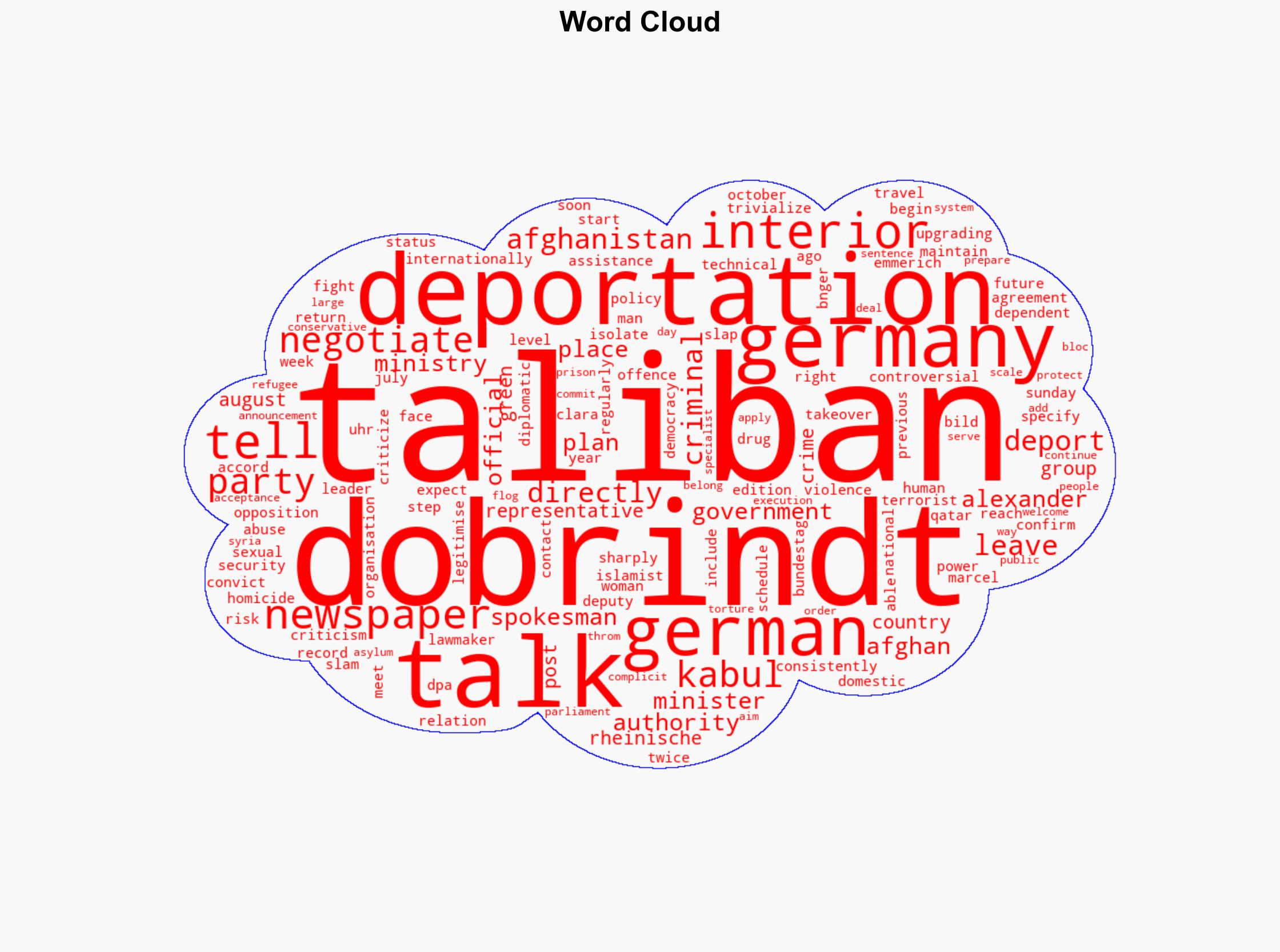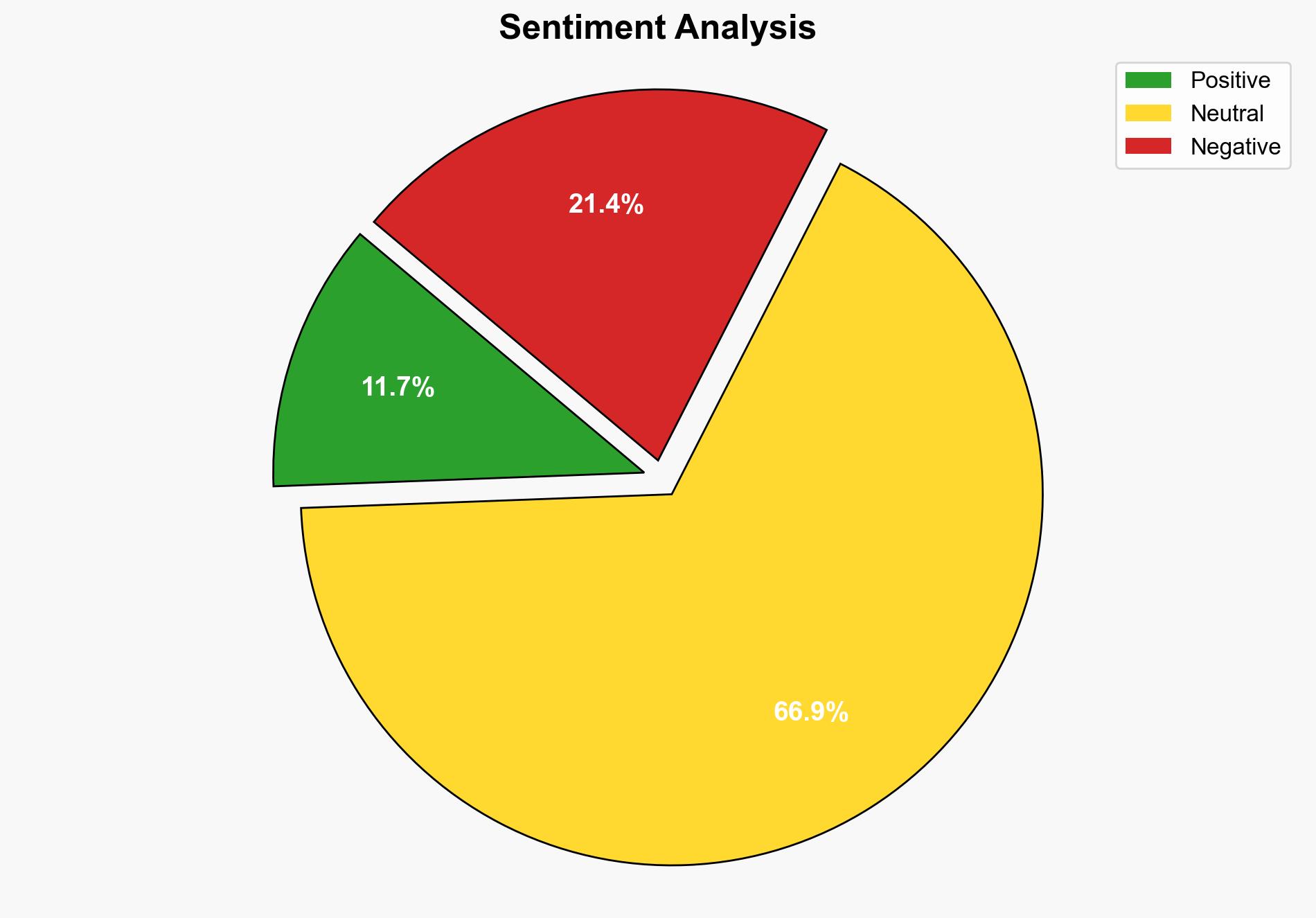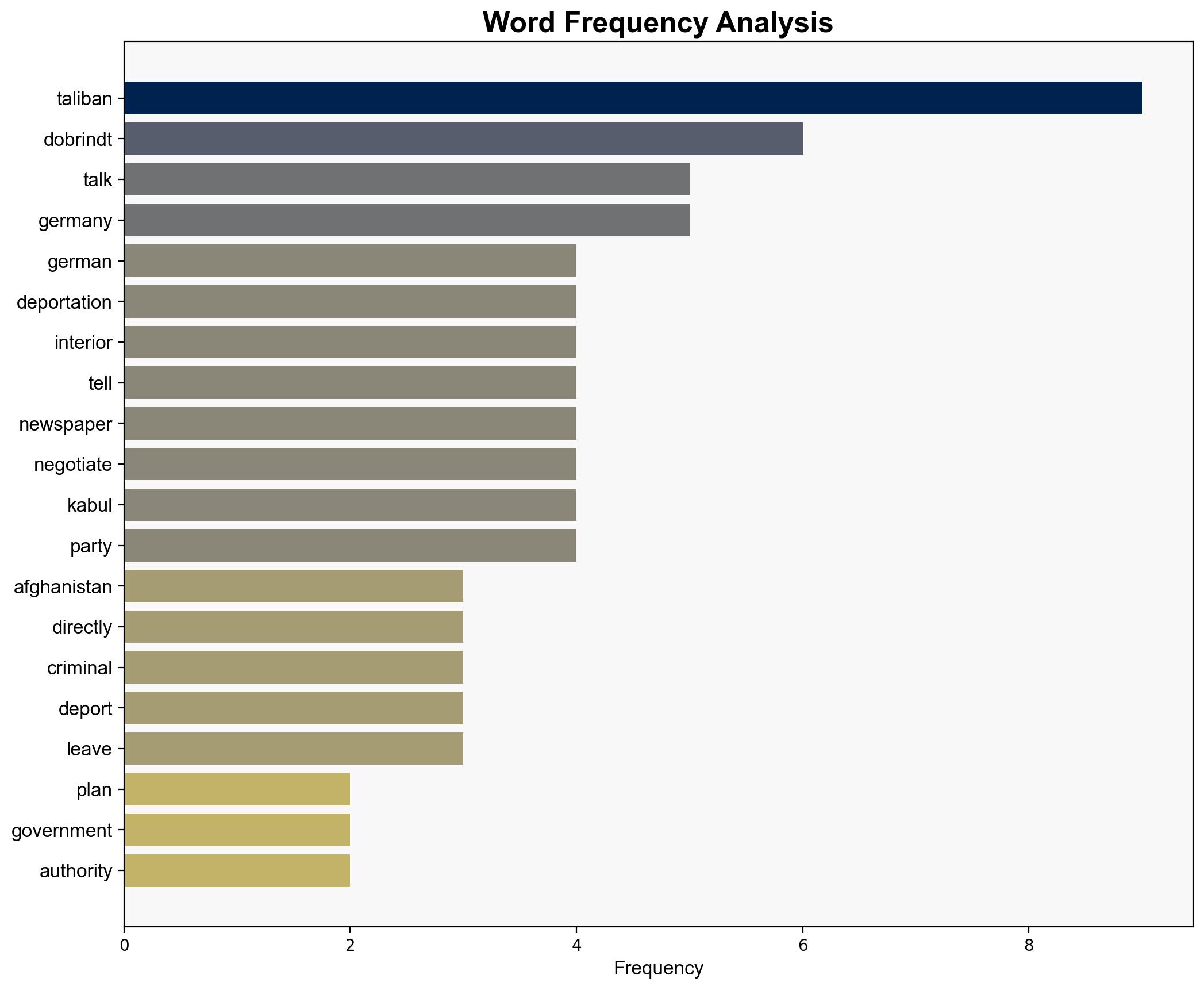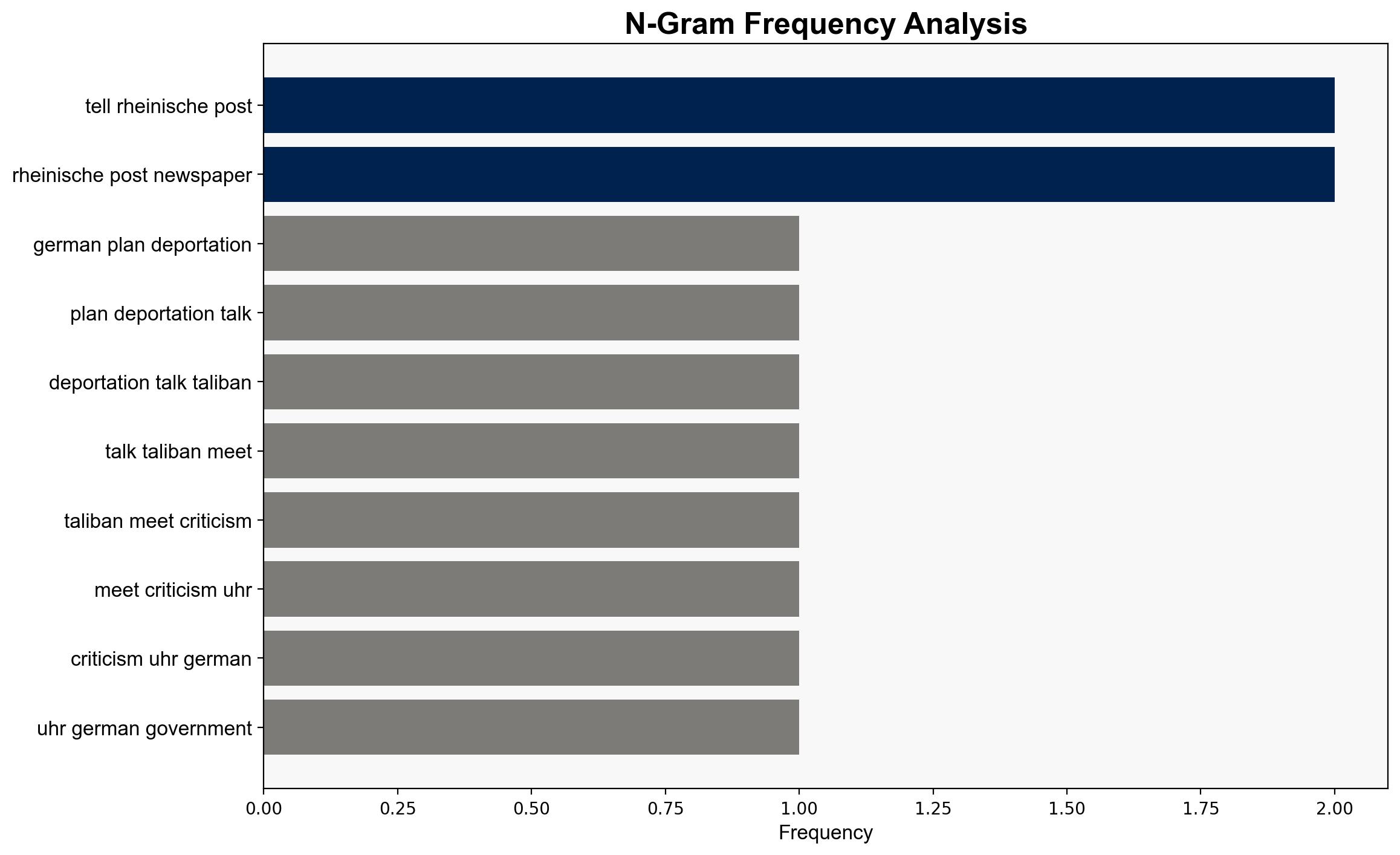German plans for deportation talks with Taliban met with criticism – Dpa-international.com
Published on: 2025-09-28
Intelligence Report: German plans for deportation talks with Taliban met with criticism – Dpa-international.com
1. BLUF (Bottom Line Up Front)
The German government’s plan to negotiate deportation talks with the Taliban is met with significant domestic criticism. The most supported hypothesis is that Germany aims to manage deportations pragmatically despite the controversial nature of engaging with the Taliban. Confidence in this hypothesis is moderate due to the complex political and ethical landscape. It is recommended that Germany considers alternative diplomatic channels and ensures transparency to mitigate domestic and international backlash.
2. Competing Hypotheses
Hypothesis 1: Germany’s primary objective is to pragmatically manage deportations by engaging directly with the Taliban to ensure the safe return of Afghan nationals deemed security risks.
Hypothesis 2: The talks are a strategic move to indirectly legitimize the Taliban, potentially securing broader geopolitical interests in the region, despite public criticism.
Using the Analysis of Competing Hypotheses (ACH) 2.0, Hypothesis 1 is better supported. The focus on deportation logistics and the lack of broader diplomatic engagement suggest a pragmatic approach rather than a strategic alignment with the Taliban.
3. Key Assumptions and Red Flags
Assumptions include the belief that direct negotiations with the Taliban will lead to effective deportation processes and that the Taliban will cooperate. A red flag is the absence of clear diplomatic protocols with a group known for human rights abuses. Additionally, the assumption that domestic criticism will not significantly impact policy execution could be flawed.
4. Implications and Strategic Risks
Engaging with the Taliban could lead to reputational damage for Germany, affecting its international standing on human rights. There is a risk of escalating domestic political tensions, potentially destabilizing the current government coalition. Geopolitically, this move might alter Germany’s relations with allies who oppose Taliban engagement.
5. Recommendations and Outlook
- Germany should explore multilateral approaches involving international organizations to manage deportations, reducing reliance on direct Taliban engagement.
- Conduct a comprehensive risk assessment of potential backlash and prepare contingency plans for domestic unrest.
- Scenario-based projections:
- Best Case: Successful deportations with minimal backlash, improving domestic security.
- Worst Case: Increased domestic and international criticism leading to political instability and strained alliances.
- Most Likely: Ongoing criticism with limited impact on the deportation process, but potential long-term reputational damage.
6. Key Individuals and Entities
Alexander Dobrindt, Marcel Emmerich, Clara Bünger, Alexander Throm.
7. Thematic Tags
national security threats, counter-terrorism, regional focus, human rights, diplomatic relations




